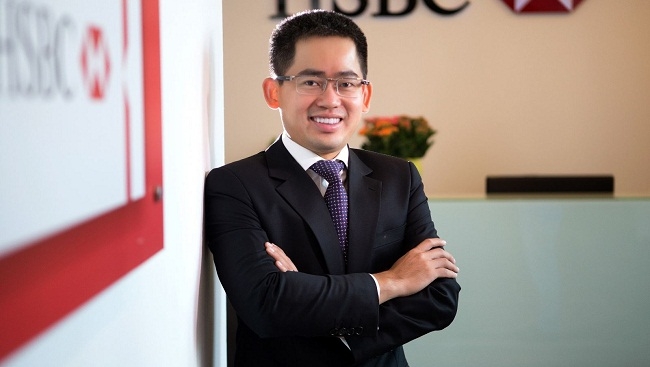Vietnam turns semiconductor vision into action
The global semiconductor industry is being reshaped by geopolitical tensions, shifting supply chains, and the surge of digital technologies.




Vietnam, and Southeast Asia at large, can only expect to see a wide-scale divergence of supply chains coming should there be improvements in production technology and capacity, and regional integration, according to HSBC.
While the shift of supply chain to Southeast Asia is happening thanks to the region’s growing economies and consumer market, as well as the US-China trade tensions, it will take more than what the regional markets have initially had to offer but a thorough preparation to fully capture the so-called large-scale supply chain movement.
According to HSBC Vietnam CEO Pham Hong Hai, although the changes in global trade are prompting businesses to revisit their supply chain investment and capacities strategies, the wide-scale supply chain shifts have yet been seen happening in Southeast Asia, South Asia or other parts of the world.
The changes, as Hai notes, would not happen overnight. “Businesses that consider shifting supply chains have to ask themselves many questions about local capacity available, skilled employees and consideration of building new facilities or start partnerships with existing local players.”

Rather than see a wide-scale shift to ASEAN, due to trade tensions, multinationals are diverging in their supply chain strategies with a mixture of localisation, offshoring and re-shoring activity emerging.
A number of shifts that has been taking shape now including China’s Guizhou Tyre Co., Ltd. that has expanded its original plan for a tyre plant in Vietnam with an increased budget investment of some $500 million.
Meanwhile, firms like British manufacturer, Dyson, are known to forge ahead with Southeast Asian investment to cater for the regional consumer market, whilst retaining existing production facilities for exports elsewhere.
“Shifts in supply chains have been a multi-year phenomenon due to structural changes in production technology, labour costs and emerging consumer markets. Over the past decade, ASEAN and Vietnam have been perceived as a strong production option for multinationals given its role within existing supply chains, growing consumer base, and strong trade and investment ties,” said Hai.
He went on to say that countries where existing infrastructure and production networks are already in place such as Vietnam are likely to be the main beneficiaries of a shift in production capacity.
“Businesses from China, Europe and the US want to see ASEAN and Vietnam further position itself as a viable alternative for lower-end production. However, to convert its much-touted supply chain potential, the country needs to build more visibility and credibility amongst international firms, particularly in their ability to handle and deliver production orders.”
The hot buttons that will matter for both large and small firms include how ASEAN and Vietnam can deliver competitive production costs, and how technology and innovation are being introduced to improve productivity. It will also come down to the relationship factor and whether businesses feel confident that orders will be serviced on time and on budget.
At a government level, this will require educating international firms about the regulatory frameworks, tax incentives, and free trade zones, along with demonstrating the improvements in ports and rail and other transport infrastructure.
It will also require ASEAN governments to demonstrate a pathway to longer-term initiatives to remove the non-tariff barriers around the flow of goods across ASEAN, the development of skilled labour, as well as the protection of intellectual property, cyber security, and movement of commercial data across borders.
Reducing supply chain barriers of this nature could increase Southeast Asia’s gross domestic product by 9.3 per cent and exports by 12.1 per cent, according to the World Economic Forum.
“While trade relations between ASEAN including Vietnam and the world’s major economies, like US and China, have generally been positive and steadily growing, there is a lot of ground still to cover within ASEAN’s backyard to further improve the intra-regional flow of trade and investment,” said Hai.
“Agility and responsiveness to these challenges by ASEAN governments and corporates will determine whether the region’s supply chain potential can be realised amongst international firms who are re-examining their options,” he added.
The global semiconductor industry is being reshaped by geopolitical tensions, shifting supply chains, and the surge of digital technologies.
The change in APA approval authority is expected to shorten processing time and enhance business proactiveness in international tax negotiations.
As hybrid cloud systems grow more complex, Vietnamese enterprises are struggling to detect cybersecurity threats moving laterally within their own networks.
The submission of the draft resolution on Vietnam’s international financial center to the National Assembly heralds a new developmental era for the country.
More than just running a 5-star resort, Kristian Petersen is redefining the art of hospitality with a humane and sustainable leadership philosophy.
For Tyna Huynh, co-founder of Drinkizz, organic is not just a food choice but a way of life that fosters a deep connection between people, nature and community.